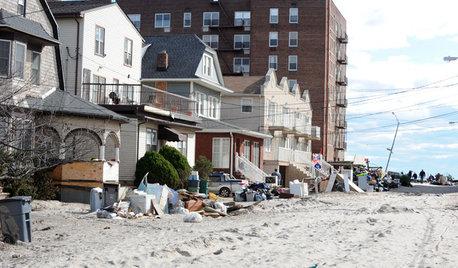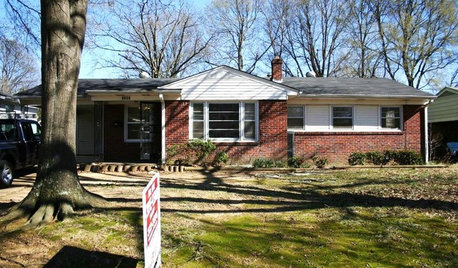hypothetical question, use cash or finance
willinak
13 years ago
Related Stories

WORKING WITH PROS9 Questions to Ask a Home Remodeler Before You Meet
Save time and effort by ruling out deal breakers with your contractor before an in-person session
Full Story
REMODELING GUIDESConsidering a Fixer-Upper? 15 Questions to Ask First
Learn about the hidden costs and treasures of older homes to avoid budget surprises and accidentally tossing valuable features
Full Story
DISASTER PREP & RECOVERY10 Contractor Scam Warning Signs
Protect yourself, your home and your finances after a natural disaster by following these tips for sniffing out storm chasers
Full Story
MOVINGTips for Winning a Bidding War in a Hot Home Market
Cash isn’t always king in a bidding war. Get the home you want without blowing your budget, using these Realtor-tested strategies
Full Story
REMODELING GUIDES5 Ways to Protect Yourself When Buying a Fixer-Upper
Hidden hazards can derail your dream of scoring a great deal. Before you plunk down any cash, sit down with this
Full Story
DESIGN PRACTICEDesign Practice: Start-up Costs for Architects and Designers
How much cash does it take to open a design company? When you use free tools and services, it’s less than you might think
Full Story
LIFEMake Money From Your Home While You're Away
New services are making occasionally renting your home easier than ever. Here's what you need to know
Full Story
BUDGETING YOUR PROJECTDesign Workshop: Is a Phased Construction Project Right for You?
Breaking up your remodel or custom home project has benefits and disadvantages. See if it’s right for you
Full Story
LIFESimple Pleasures: 25 Ways to Make the Most of a Staycation
Give the daily grind the day off by hiding your work stuff, treating yourself and enjoying the outdoors
Full Story
DECORATING GUIDESImproving a Rental: Great Ideas for the Short and Long Haul
Don't settle for bland or blech just because you rent. Make your home feel more like you with these improvements from minor to major
Full StorySponsored
Industry Leading Interior Designers & Decorators in Franklin County
More Discussions







guvnah
rafor
Related Professionals
New River Architects & Building Designers · Providence Architects & Building Designers · Troutdale Architects & Building Designers · Pooler General Contractors · Bell General Contractors · Country Club Hills General Contractors · Decatur General Contractors · DeKalb General Contractors · Kettering General Contractors · Nashua General Contractors · Newburgh General Contractors · North New Hyde Park General Contractors · Owosso General Contractors · Tuckahoe General Contractors · Kendale Lakes Home Stagersbrickeyee
willinakOriginal Author
sweet_tea
sylviatexas1
brickeyee
dave_donhoff
willinakOriginal Author
qdwag
rafor
brickeyee
Billl
dave_donhoff
willinakOriginal Author
Happyladi